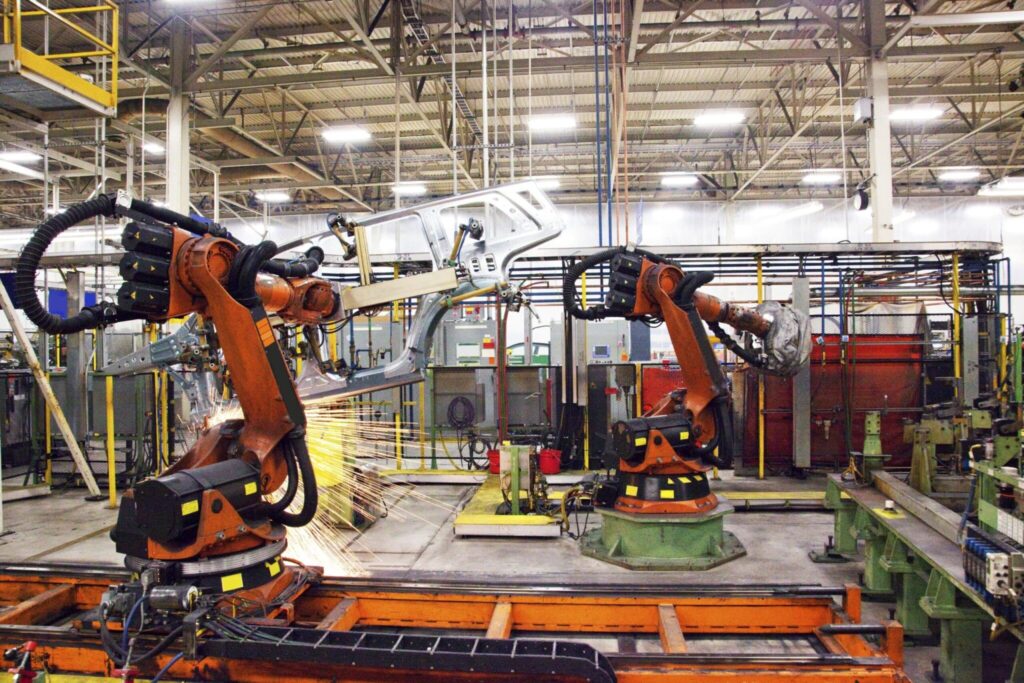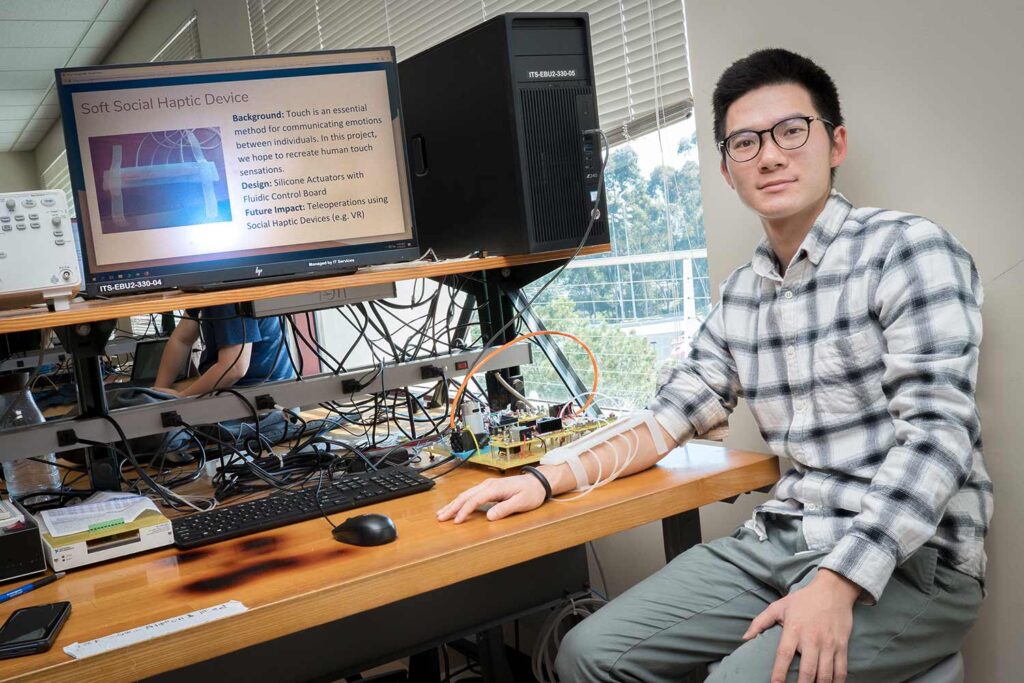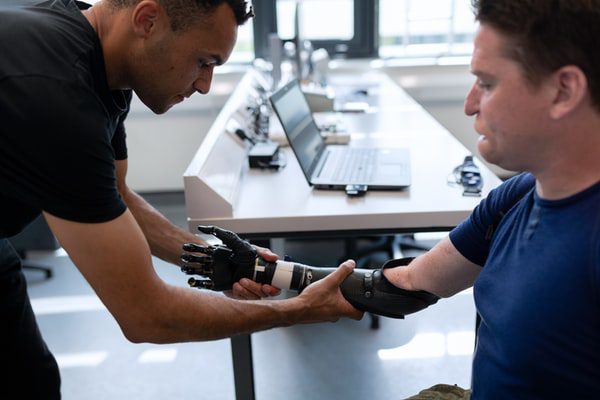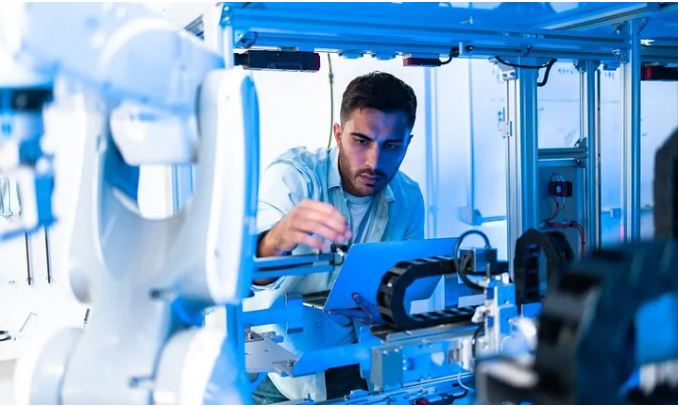Introduction
The development of Artificial Intelligence has actually transformed the way industries operate around the globe. It is able to process massive amounts of data as well as automate routine tasks and boost decision-making capacity, AI is transforming engineering methods in an unprecedented way. engineering applications of artificial intelligence ,From robotics and manufacturing through supply chain administration as well as the ability to predict maintenance AI is proving itself to be a highly effective instrument that increases productivity and increases the speed of innovation.
In this blog, we will look at actual case studies and analyze the insights based on data that demonstrate the importance of AI. At the end of this post, you’ll be able to understand the reasons why AI isn’t just an euphemism but rather a paradigm shifter across industries around the world.

The Importance of AI in Engineering
AI has revolutionized the field of engineering with its ability to automate the processes that were previously tedious, manual, and risky. Its ability to analyze huge data sets, forecast results, and improve systems can help engineers increase efficiency, decrease costs, and create more innovation than before. A study by McKinsey & Company shows that AI-powered technology could improve production productivity by up to 20-30% in 2030.
Additionally, AI is enabling engineers to create better products, enhance supply chains and manage machines more effectively.
AI in Manufacturing: Automation and Efficiency
AI is changing the way manufacturing processes by allowing automation at a level never before ever before. The robot, powered by AI, is now performing jobs like welding, assembly, and painting. It not only speeds up production but also increases precision and decreases human error.
In the auto industry, businesses such as Tesla and BMW employ AI-powered robots in their manufacturing line. Tesla’s Gigafactory, For instance, makes use of AI-driven robots to build electric vehicles that are precise, which helps the business increase production and maintain quality. It has also led to quicker manufacturing and an impressive decrease in the cost of labor.
Predictive Maintenance Using AI
One of the largest uses of AI in the field of industry includes predictive maintenance. AI machines can analyze historical information gathered from machines, sensors, and operating circumstances to anticipate what equipment may fail and when and allow companies to conduct maintenance prior to breakdowns occurring. This can reduce the time it takes to repair and extend the life of equipment and reduce maintenance costs.
One example is General Electric (GE), which makes use of AI to track the condition of jet engines in real-time. General Electric’s Predix platform makes use of AI to analyze the data collected from thousands of sensors installed on jet engines, allowing them to forecast possible failures and enable airlines to anticipate maintenance. The application has resulted in substantial cost savings as well as increased operational efficiency.

AI in Supply Chain Optimization
The management of the supply chain is a different area in which AI has had a major influence. Through the use of AI algorithms, businesses can enhance inventory management, forecast demands more precisely, and reduce the time it takes to complete logistics. AI software analyzes huge amounts of information, such as historical data on sales, market trends, and weather patterns, to anticipate demand and alter the levels of inventory accordingly.
As an example, Amazon uses AI-driven systems to improve the supply chain processes. The company’s Kiva robots run on AI to transport products through huge warehouses, which makes inventory management more speedy and efficient. The systems that AI powers have decreased the cost of human labor and increased the speed of delivery. This has allowed Amazon to retain its edge when it comes to the online marketplace.
AI in Product Design and Development
In the world of engineering, the design and development of products are key phases in which AI makes a major contribution. AI helps engineers develop improved designs by automating tests and simulations. This can lead to faster innovations and the development of product designs that are efficient and affordable.
Consider the example of Airbus and its partnership with AI for the development of the latest aircraft. Airbus utilizes AI algorithms to model the flight pattern as well as engine performance and aerodynamics. The AI tools assist engineers in optimizing design for efficiency in fuel and security. Indeed, Airbus has reported that AI reduces the amount of time needed to develop new aircraft by 20% to 30 percent, speeding up the design process.
AI in Civil Engineering: Smart Cities and Infrastructure
Civil engineering is a field where AI plays an important part in the design and management of smart cities as well as infrastructure. In using AI together with the data gathered via sensors or IoT equipment, designers will be able to make more efficient and sustainable urban spaces. AI is able to anticipate traffic patterns as well as optimize energy consumption as well as assess the health of structural integrity of bridges and structures.
A good instance of AI used in civil engineering would be one of the projects in civil engineering is the Singapore Smart City initiative in which AI is employed to regulate traffic flows and to check the condition of public infrastructure. The AI system analyses data collected by thousands of sensors in the city to help optimize the timing of traffic signals, decrease traffic congestion, and increase the movement of goods as well as individuals. It not only improves the efficiency of the city, but it also minimizes the environmental impact.
How AI is Transforming My Own Engineering Projects
Based on my personal experience within the field of engineering, I’ve witnessed firsthand how AI transforms how we think about solving problems. For several of my latest initiatives, AI tools helped automate tedious tasks such as analyses of data or optimization. My team was able to concentrate on more difficult engineering and design challenges, which ultimately increased our efficiency.
AI in Electrical Engineering: Enhancing Circuit Design
Electrical engineering in the field of engineering is also greatly benefited by AI. Most notable is the utilization of AI algorithms to create circuits and improving. AI can analyse hundreds of design combinations in the exact time span that is required by each human being. It allows engineers to determine the most efficient and cost-effective options. This is vital for fields like electronics or consumer goods that require quick adjustments. Essential to be at the cutting-edge of technology.
In this instance, Qualcomm, a leader in semiconductor technology, uses AI-powered models to create high-quality circuit boards designed specifically to be used in phones. The AI software permits engineers to optimize energy use and decrease temperature rise as well as improve efficiency of the overall design. That’s why the company is able to accelerate innovation and remains on top of its market.
AI in Robotics: Revolutionizing Automation
AI is an essential aspect of robotics. It allows machines to carry out tasks that require decision-making recognition of patterns, as well as learning. When it comes to manufacturing, AI-powered robotics are employed for a variety of functions, from assembly and quality control. The robots aren’t simply programmed to obey a set of directions; they are taught and adjust to the environment they are in, making their capabilities more flexible and effective.
Boston Dynamics, a company that is known for its unique robots, employs AI to help the robots it uses to navigate environments, take decisions as well as collaborate with humans. Spot their robot Spot is utilized in a range of fields such as construction, healthcare, and more in order to streamline tasks such as inspecting and surveying. Through the incorporation of AI, robots are able to handle higher-level tasks and enhance the efficiency of industries in which humans were once the primary source of labor.
The Future of AI in Engineering
As AI technology advances, the applications it can make in the field of engineering are likely to increase in scope. Over the next several times, we will likely encounter AI-driven design that is customized and optimized for specific needs as well as self-enhancing. The combination of AI alongside other technologies such as 5G, blockchain, and IoT is likely to produce smarter, more efficient systems in all industries.
The World Economic Forum predicts that AI can basically contribute to about $15.7 trillion to the world economy by “2030”. transport, manufacturing, and healthcare paving the way with its the adoption of AI. This highlights the enormous potential AI will have to influence how engineering will develop as well as industry.
How AI Is Shaping My Own Perspective on Engineering
In reflecting on the increasing importance of AI in the field of engineering I’ve discovered that it has changed my method of problem solving. Though it used to be that AI was something that should be only for the most futuristic of industries, AI has now become an integral part of the daily work I do. Automating complex processes and drawing insights from data have fundamentally altered the way I think about projects.

AI in Environmental Engineering: Waste Management and Sustainability
Through the analysis of data collected by sensors, AI algorithms can improve the recycling process, waste collection, and monitoring of pollution.
In this way, AI systems can predict the amount of waste generated within a specific region using patterns derived from previous information. They can optimize the routes for collection, which reduces fuel use and the amount of time. This way, AI is helping industries decrease their carbon footprint and improving the efficiency of operations.
AI-Driven Quality Control in Manufacturing
AI has revolutionized the process of quality control within the manufacturing industry. The traditional methods for quality control use manual inspections, which are slow as well as subjective, and susceptible to mistakes.
As an example, Cognex, a leader in the field of industrial machine vision, utilizes AI-powered cameras and software for examining manufacturing lines of products immediately. The systems are able to detect small defects that the human eyes would not notice. AI algorithms can recognize patterns and differences, which allows for an improved quality control system that reduces waste and helps to ensure higher standards of quality.
AI for Supply Chain Risk Management
In a globalized world, Supply chains are prone to interruptions caused by natural catastrophes in the geopolitical sphere, as well as abrupt fluctuations in demand. AI can be utilized to anticipate and mitigate the risks associated with these by analyzing large amounts of data from multiple sources, such as market trends as well as weather patterns, and worldwide events.
AI models are capable of predicting potential interruptions and offer mitigation methods, including alternative routes or sources of sourcing. As an example, IBM Watson is used by many businesses to expect disruptions to their supply chain, which allows businesses to make intelligent decisions to reduce the effect of unexpected incidents.
AI in Smart Manufacturing: The Role of Industry 4.0
Industry 4.0 refers to the continuous change in the manufacturing industry caused by AI, IoT (Internet of Things), and massive data. AI plays an important role in this transformation by providing smart factories where devices, sensors, and even systems are able to communicate with each other continuously to improve manufacturing processes.
This improves efficiency, decreases downtime, as well as more flexible manufacturing systems that are able to adapt rapidly to changes in demand. Some companies such as Siemens as well as General Electric have implemented AI-driven technology in their manufacturing facilities to build smarter environments that improve productivity while reducing operating costs.
AI for Structural Health Monitoring in Civil Engineering
In the face of deteriorating infrastructure all over the globe and the increasing use of AI for structural health, monitoring has become more important in identifying possible weak points in bridges, structures as well as other structures that are critical to health.
Utilizing AI to analyze information from sensors in infrastructure (such as strain, vibration as well as temperature data), engineers are able to spot problems early, anticipate the time when maintenance will be required, and decrease the chance of devastating breakdowns. As an example, AI has been used to check bridges’ performance throughout New York City, where engineers are able to recognize structural weaknesses and design fixes before they cause dangerous safety issues.
AI in Process Optimization and Automation for Chemical Engineering
AI algorithms are able to create models and simulations of chemical reactions, predict the outcome, and make recommendations for process improvements that improve efficiency as well as reduce the amount of waste. Businesses such as Shell have adopted AI in order to optimize refinery processes and reduce operating costs as well as environmental impacts.

Conclusion
AI isn’t just an innovative technology. It’s an emerging technology that is changing the face of industry across the world. In addition to improving manufacturing processes and increasing the efficiency of supply chains and enhancing urban planning AI has proven to be useful for engineers. Engineers must embrace AI isn’t a choice anymore. It’s vital to remain modern and relevant in a rapidly changing and automated environment. Based on my own experiences, AI offers immense potential to tackle complex issues increase productivity, improve efficiency, as well as push the boundaries of what is possible. Engineering’s future is inexplicably tied to technological advancements in artificial intelligence. And we are only beginning to get a glimpse of what’s feasible.
FAQS
What are the most important industrial applications for AI in the field of industry?
AI can be used in manufacturing as well as predictive maintenance and supply chain optimization. Quality control and intelligent infrastructure.
How can AI help improve processes for manufacturing?
AI can automate tasks such as the assembly process, inspection of quality, and scheduling production, which leads to a faster pace of production as well as fewer mistakes.
What is predictive maintenance? Industry engineering?
Predictive maintenance makes use of AI to analyze data from equipment and predict failures prior to they occur, thus reducing the amount of downtime and repair expenses.
How can AI improve supply chain management?
AI analyses data to forecast demand, improve inventory, cut delivery times, and make supply chains more efficient and economical.
What is Industry 4.0?
Industry 4.0 is the process of transforming manufacturing through AI, IoT, and big data in order to build intelligent, automated factories.
AI assists in monitoring infrastructure such as buildings and bridges by analyzing sensor data to identify problems and help enhance maintenance.
Does AI assist in Chemical engineering?
Absolutely, AI optimizes chemical processes increases yield, as well as decreases energy use by simulating processes and altering parameters continuously in real-time.
What role can AI play in quality assurance?
AI utilizes computer vision as well as machine learning in order to automate inspections, increasing accuracy as well as reducing the amount of errors on manufacturing lines.
What is the role of AI aid in ensuring sustainability for the planet?
AI aids in improving recycling, garbage management, and monitoring pollution levels by promoting more eco-friendly practices across various industries.
The truth is that AI has become increasingly available to businesses regardless of size, providing tools and platforms to aid in streamlining operations and improving productivity across all sectors.
